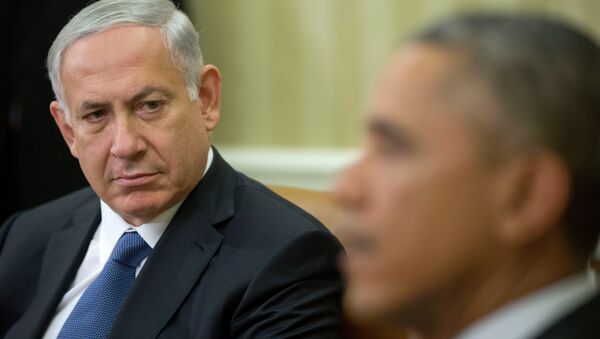While the report briefly touched upon Israel’s motivations in the oil exchange, suggesting Tel Aviv was funneling money to Irbil to support Peshmerga forces’ fight against the self-proclaimed Islamic State, much of the article focused on the impact Kurdish oil exports have on the region’s relations with Baghdad’s federal government.
The oil exports from Kurdistan, which are said to be conducted through "secretive pre-pay deals," reflect growing fractures between the central government in Baghdad and the Kurdistan Regional Government (KRG).
This comes in light of the tenuous deal agreed between Baghdad and the KRG, in which the autonomous region would be rewarded with a portion of the national budget in exchange for a joint export of crude oil. As the Iraqi federal government struggles with a national budget crisis, however, the KRG has only received limited payments, leading it to "Sell more oil on its own account."
Selling oil to Israel, a state not recognized by the Baghdadi government, further underlines the tension between the KRG and Baghdad, according to FT.
However, a recent article on the Israeli military website DEBKAfiles, has asserted that FT’s coverage of the issue was motivated by ulterior motives, namely: to undermine Israel’s role in the energy market in light of the recently brokered Iran nuclear deal.
The DEBKAfiles report begins by questioning the timing of FT’s article, noting that not only is the Kurdish export of oil to Israel not a new "discovery," but also that its coverage by FT on the same day as the reopening of British and Iranian embassies in their respective capitals raises some questions. The article additionally claims that the timing and publication of the article merely serves to further the British government’s interests in Iran, specifically its oil industry, at the expense of Israel.
Since London wants to develop profitable ties with Tehran, DEBKAFiles alleges that "the Islamic Republic was meant to infer from the FT report that British intelligence resources and its powerful media were available as tools for beating Israel out on the world’s energy markets."
Another purpose the FT report serves, according to DEBKAfiles, is to pander to US interests. The article alleges that during the critical periods of nuclear deal negotiations, the Obama administration "was anxious to show Tehran how close the US would play ball with Iran and Shiite-dominated Iraq on the vital issue of oil."
As such, the DEBKAfiles report claims, when Kurdish oil was being delivered to Israel last year aboard a United Kalverta tanker, an "American warship" kept tabs on it to "prevent the oil [from] being unloaded at any port, since Washington viewed the cargo as the legal property of the Iraqi government – not the KRG."
Independent oil exports from semi-autonomous northern region, according to the Israeli media source, represents yet another point of contention between Israeli Prime Minister Benjamin Netanyahu and US President Barack Obama. The Obama administration has urged for a joint export of oil through the Baghdadi federal government.
However, Netanyahu, DEBKAfiles reports, was ready to “go head to head with the Obama administration” on this issue, due to the cheap prices of Kurdish oils, as well as his interest in supporting the Kurdish Peshmerga with oil revenues.
"The pejorative depiction of Israel’s purchase of Kurdish oil was meant to gain London points," DEBKAfiles reports. "Not just with Iran and Iraq, but also with the Obama White House."






